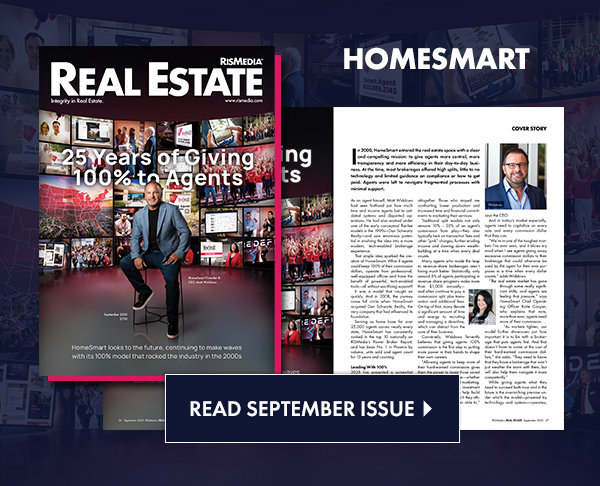There are varying five-word combinations that an agent loves to hear from a new client. They include: “I’m buying a house solo,” “There is no better half,” “Mine is the only opinion” and “You just work with me.”
So, that means no couples arguing over anything, no people investing together with differing agendas, etc. For a home transaction, often one is company and two’s a crowd. There’s very little miscommunication as you bond one-to-one with the client. These transactions are also becoming more common, data shows. Of course, the challenge is to find a house that works for them, and sometimes there are singular challenges with single buyers.
“I’d say roughly 20% – 30% of my buyer clients these days are single, and that number feels like it’s been steadily climbing, especially over the last few years,” says Josh Jarboe, broker/owner of RE/MAX Empire Buyers in Kentucky. “A lot of them are first-time homebuyers who’ve done their homework, saved diligently and are now ready to take that next step on their own terms. Many are also just plain tired of renting and watching their hard-earned money go toward someone else’s investment. With rent prices reaching absurd levels in many areas, they’re realizing that owning (even on a single income) can often be more stable, more affordable, and way more empowering.
“One big difference I’ve noticed between single buyers and couples is the speed and clarity in decision-making. Single buyers typically know what they want and don’t feel the need to ‘circle back’ or try to find the perfect property that checks two completely different sets of ‘must-haves,’ which can really streamline the process. That said, it can also come with a heavier emotional load, because there’s no one else to bounce decisions off of in real-time. I often find myself stepping into the role of sounding board, advisor and part-time therapist. I’m good with it because the relationships built along the way are one of the most rewarding parts of this industry.”
Shannon Murree, of REMAX Hallmark Chay Realty in Barrie, Ontario, Canada, also enjoys working with single buyers who have no one else to please with a purchase.
“I love their decisiveness,” she says. “Their decision-making is often more straightforward as they don’t need to compromise with a partner, but they’re also doing it all themselves, so they need an agent who’s not going to talk down to them or overcomplicate things. They want straight advice and solid support. Couples, on the other hand, sometimes are balancing different priorities and expectations, and usually need more negotiation between each other to decide before we even get to the negotiation part to make an offer.”
The best values
So where do solo buyers get the best value? A new report from Realtor.com® identified the 10 best states where solo buyers can afford a home—and live comfortably, based on a combination of income needed for a single adult and median listing price of homes. The South ruled, with six of 10 locations.
In order, the results are West Virginia, Arkansas, South Dakota, North Dakota, Kentucky, Oklahoma, Ohio, Alabama, Louisiana and Mississippi.
“The housing market has gotten increasingly expensive and increasingly difficult to afford on just one income,” said Hannah Jones, senior economic research analyst at Realtor.com, in a statement. “Single home shoppers may have to compromise on the type or size of home, or the location, to achieve homeownership on just one income.”
Murree stresses that affording a home on one income is tough, and she is seeing single professionals and post-secondary grads teaming up to co-buy just to make it happen.
“It’s no longer about finding the dream home; it’s about securing something that builds equity,” she explains. “Buyers are getting creative and practical, because rent isn’t doing them any favors. Around 35% – 40% of my clients are single. I’ve built a strong reputation over the years for helping people through big life transitions—separation, starting over or just buying solo because they’re ready.”
Joni Usdan, an agent with Coldwell Banker in Westport, Connecticut, notes that while singles get to make all the decisions, they face pressures as well.
“Affordability is one aspect, but I have found when singles are looking for a home and will be solely responsible for the payments and the whole decision process, it can manifest uncertainty because there’s a bit of a vacuum,” she says. “I attribute this to the lack of a point/counterpoint for weighing options and bouncing ideas. I’ve noticed that when I work with a couple on a property and then they split up, when I next work with one of them individually, the dynamic is very different and can stymie them.
“These decisions are tough enough, with big numbers relative to a buyer’s overall expenditures, so having a trusted confidante/partner can be a real asset in real estate purchases, even if they have a great agent.”
Jeff Feldman, with RE/MAX Results in Edina, Minnesota, also acknowledges there are relationship dynamics that play into buyers’ plans both in the present and going forward.
“I work with single clients; the only difference now is more of them are coming out of a divorce or lost a spouse,” he says. “I am an advocate for them in different ways. A couple of examples are trying to establish their new vision of what they want going into a different phase of life, and working with them and their children, young adults who want to chime in.
“Then being part of their meetings with financial planners, lenders and inspectors and tradespeople. First-time buyers usually do not have planners. Empty nesters have more moving parts financially, usually in a positive way, so I help them put the puzzle together of buying a new home and making it great.”
Prospecting for single buyers would seem like something that could be useful, but Pam Rosser Thistle, with Berkshire Hathaway HomeServices Fox & Roach, REALTORS® in Philadelphia, feels it isn’t needed.
“Single females are my biggest buyer group, but I don’t prospect for them; they are naturally out there,” she says. “I explain the value of owning, especially as a long-term asset, and help them through the purchase process. A familiar sequence is a woman buying a smaller home, later pairing with a partner and sometimes having a child together. Then I help this woman sell (often with sizable equity) or hold onto her home as an investment property.”
Jarboe concurs, favoring another strategy to find solo buyers.
“Do I prospect specifically for single buyers? No, not intentionally,” he explains. “I market myself and RE/MAX Empire as a brokerage with a strong emphasis on independence, empowerment and smart financial decisions. That tends to resonate with them. I’ve had several clients reach out after hearing me on the radio or seeing our content online because they felt like we ‘got it’ and provided information that completely opened their eyes to the fact that buying a home is actually within reach.”
Financial considerations
“Qualifying on one income can be a challenge, especially with current stress test requirements and rising interest rates,” says Murree. “It’s one thing to have the income, but being able to carry the mortgage, utilities and taxes and still live comfortably takes strategy. That’s why some buyers are pooling resources, considering co-ownership, or buying properties with income potential. To some of my clients a ‘little light’ on qualifying with a single income, I’ve been referring them to mortgage brokers to get qualified, and then as we shop we’re looking for homes with an additional suite to help offset the mortgage and boost income. I also introduce them to a property manager if they’re unsure about managing a property. It’s always about communication and guidance and what they’re comfortable with.”
Erwin Nicholas is broker/owner of Mr. Real Estate in Houston, Texas. He has expansive views on the singles market, having worked with a variety of career men and women.
“In today’s shifting real estate landscape, one buyer segment is making an outsized impact: single professionals,” he says. “Whether they’re in tech, healthcare or professional sports, these individuals are moving differently—literally and figuratively.
“As a private broker, I’ve worked with everyone from tech founders to travel nurses and pro athletes. What they all share in common is the need for flexibility, speed and lifestyle alignment—sometimes under unpredictable conditions. In fact, roughly 35% – 40% of my clients are single, and many of them are buying for both personal use and long-term investment potential.
“Among my female clients, I’ve noticed a pattern: they typically come into the process with strong clarity about what they want—whether it’s architectural design, safety, location or resale potential. While they may not always be experts on home systems or mechanical maintenance, they are extremely resourceful. They always have someone to call—a designer, contractor or estate manager—to help them make confident decisions and maintain their homes with ease.”
Nicholas provided examples of singles who have unique professions impacting their home-buying decisions.
“A fast-growing segment of single buyers are travel nurses and independent healthcare professionals,” he says. “Houston, home to the world’s largest medical center, has become a magnet for these professionals. Many are investing in condos or small homes not just for personal use, but as income-generating assets when they’re on assignment. With George Bush Intercontinental Airport (IAH) serving as a major hub, they’re able to maintain global mobility while building equity in a rapidly appreciating market.
“Then there are my athlete clients, whose housing decisions are often complicated by the lack of control they have over where they live. Trades happen suddenly—without warning—and athletes (single or with families) are frequently uprooted by the organizations that employ them. To protect their interests, I’ve had to negotiate ‘trade clauses’ into agreements that allow them to break a lease without major financial penalties if they’re relocated. It’s a real-world example of how real estate for this clientele has to be more than a transaction—it has to be built around adaptability and foresight.”
One major point of difference between solo buyers and couples is the importance of a good school system.
“When I work with couples and families with young children, nearly 90% of their search is driven by proximity to great schools—and access to the best healthcare facilities,” continues Nicholas. “These clients want to know their children are in a safe, enriching environment with strong community support and short commutes to hospitals or specialty care. For them, real estate is about security and stability, not speed or flexibility.
“What all of these clients have in common, whether single, coupled, famous or quietly independent, is a desire for homes that support a life in motion. They’re not just buying places to live, they’re buying options, flexibility and freedom. As brokers and agents, we have to meet them where they are, not just in the market, but in life.”
Murree concludes by insisting that single buyers aren’t a niche.
“They’re a major part of the market, from all walks of life and with no age limit,” she says. “They don’t want fluff, and they’re not waiting for the perfect scenario. They’re ready to act, and most have already done the research on their want and don’t-want list. I often get a needs analysis checklist from a client, and then we’ll go over what their absolute ‘immovables’ are when it comes to searching for their home. No home is perfect; it’s about what’s good for them.”












